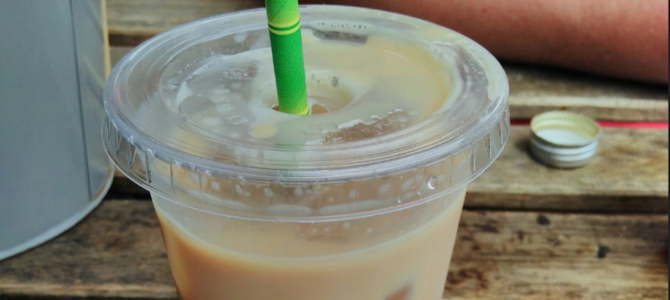Do not be convinced you are saving the planet by drinking out of a terrible straw. Plastic straws are simply not killing the planet, and science just can’t stop proving it.
While it may seem like merely a minor inconvenience to drink out of a mushy paper straw or sippy-cup lid, bans on straws have become the trendiest piece of legislation in the United States. Virtue-signaling lefties rejoice in what they consider to be “planet-saving” bans on useful items that children and disabled people need daily. The bans are not based at all on science and facts about ocean pollution but entirely reliant on activist emotion intent on making people think the world is on the verge of ending.
Straws account for a nearly immeasurable amount of refuse in the ocean, yet laws are being changed at the whim of a widely shared conspiracy that they pose a significant risk to the planet despite significant evidence to the contrary. Last week, Democratic California Sen. Kamala Harris said she would enact a federal ban on plastic drinking straws if she were elected president in 2020, despite also saying paper straws are barely useable. Cities across the United States, such as Washington, D.C., Seattle, and the entire state of California, have mandated that businesses no longer provide plastic straws to their customers.
Let’s look at some of the most blatant facts that debunk the idea that giving up an incredibly convenient, useful, and frankly necessary household item will contribute to any “planet saving” whatsoever.
Plastic Straws Account For Virtually No Ocean Pollution
The United States contributes less than 1 percent of the world’s plastic ocean pollution annually. While a staggering amount of plastic waste does enter the ocean each year, a study in Science journal revealed that 275 million metric tons was dumped into the ocean worldwide by people living 30 miles or less away from the ocean shore across the globe. Of that, the United States contributed less than 1 percent. China and Indonesia were the biggest contributors by an enormous margin.
Plastic straws account for less than 1 percent of the less than 1 percent the United States dumps into the ocean. In fact, even climate activists involved in the study struggled to see any noticeable effects of a nationwide straw ban. “Plastic straws are only a tiny fraction of the problem – less than 1 percent,” said an official involved with the study.
“The risk is that banning straws may confer ‘moral license,’” said Jim Leape, co-director for the Stanford Center for Ocean Solutions. “The crucial challenge is to ensure that these bans are just a first step, offering a natural place to start with ‘low-hanging fruit’ so long as it’s part of a much more fundamental shift away from single-use plastics across the value chains of these companies and our economy.”
Leape, an avowed environmentalist, seemed to readily acknowledge the futile act of removing plastic straws from American life. Note that his goal instead is to increasingly ban more and more products we all use. One wonders where that all might end?
Paper Straws Are not Biodegradable nor Recyclable
Further problems: Paper straws are not actually biodegradable and use significantly more energy to produce than plastic straws. In fact, paper straws don’t degrade all that much faster than their plastic counterparts. So before you congratulate yourself for unwrapping a delightful paper straw at your favorite coffee house, consider the actual environmental effects.
Paper straws aren’t recyclable. Plastic products that encounter food are recyclable, but paper products, which absorb food and waste, are not. Once tainted with food or drink, a paper product must be routed to landfill.
Yet despite these extremely easy-to-research facts, presidential candidates and lawmakers across the country have vowed to make these types of bans priorities — and it’s been effective. That’s what’s really scary. These laws are based on nothing other than virtue signaling, a hope to control consumption in the United States, and a desire to ban more and more things we all use.
Your plastic straws are not hurting the environment, but the laws against them are irrevocably hurting our freedom.









